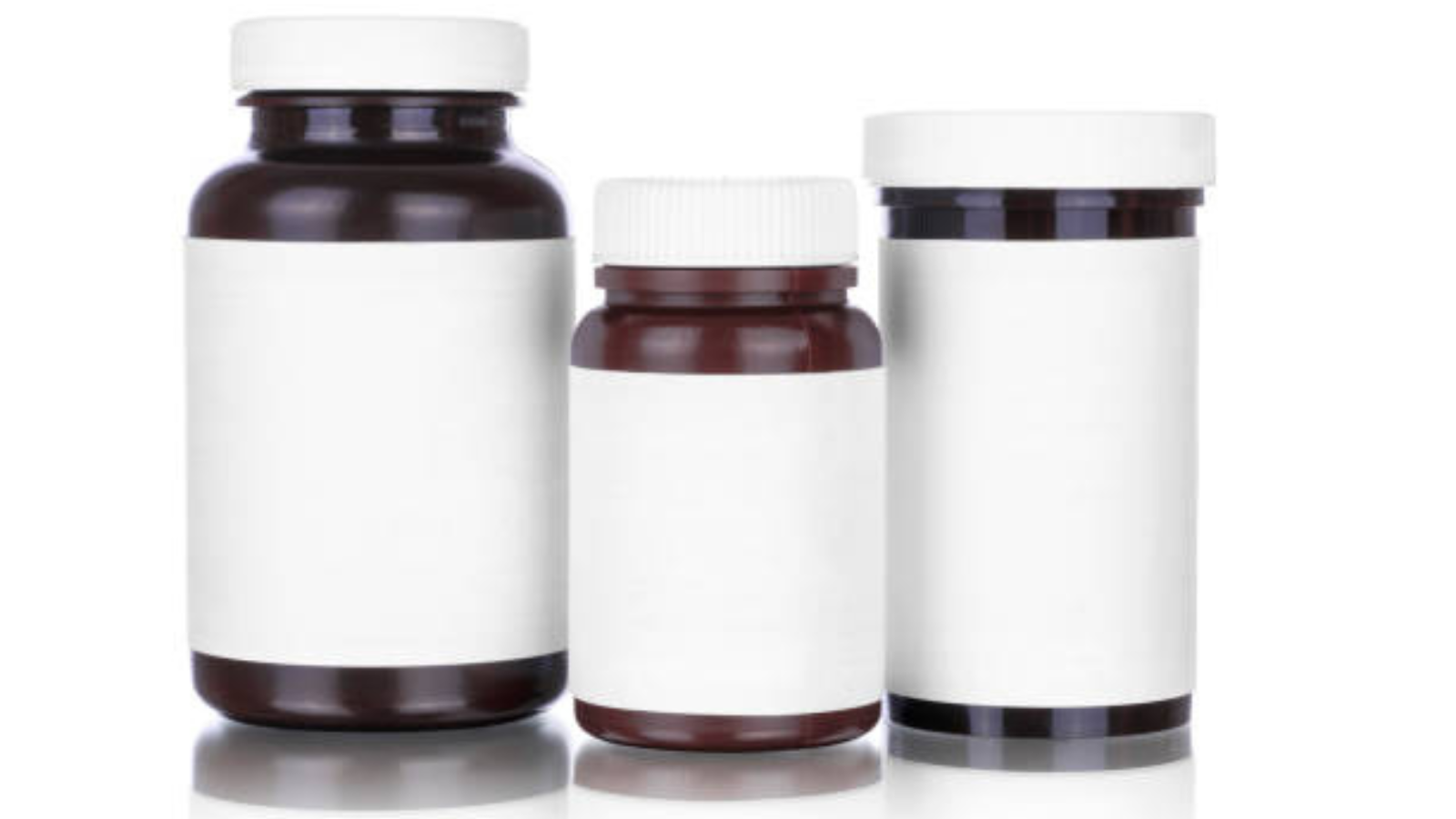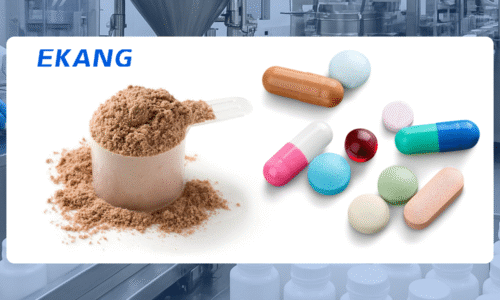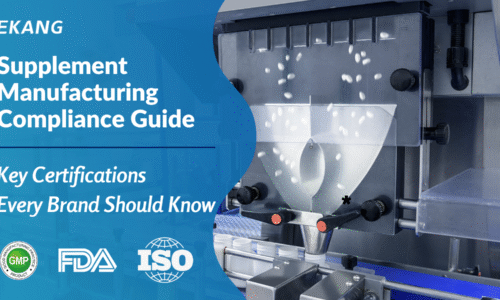
According to relevant data, the global dietary supplement market size is expected to reach US$704.28 billion by 2030, mainly due to the increased health awareness of consumers, the diversification of functional health solutions, and the demand for personalized, scientifically verified products.
If you’re a fitness trainer, a health entrepreneur, or an influential opinion leader, creating your own private label supplements is a surefire way to enter this rapidly growing market. Not only does it allow for better control over product quality, it also maximizes profits and builds a loyal customer base.
But going from concept to finished product requires strategy and expertise. As a potential supplement manufacturing partner, the following 10 key tips can help you launch your branded products quickly and in compliance with regulations.
1. Start with Market Research for Private Label Supplements
Before you start your private label journey, it’s essential to do your homework. In-depth market research is key.
Try using tools like Amazon’s Bestsellers list and Google Trends to pinpoint the hottest product categories, such as collagen, beauty botanicals, anti-aging products, or brain health supplements. To get a better sense of future market trends, also look at authoritative industry reports like those from the Nutrition Business Journal.
Defining your target audience is also crucial. Are you focusing on high-intensity supplements for athletes or health maintenance products for older adults? Understanding customer needs will enable you to precisely design your formulas and marketing strategies.
Don’t forget to analyze your competitors. Study their bestselling products, pricing strategies, brand tone, and customer reviews. Use tools like Helium 10 or Jungle Scout to discover keywords and customer feedback, find gaps in the market, and build a competitive advantage through differentiation.
2. Build a Distinctive Supplement Brand Identity
The supplement market is highly competitive, so a brand with a story and a strong emotional connection will help you stand out. A brand is more than just a name or a label; it’s a bridge to connect with your customers on an emotional level.
Think about what motivated you to create this product line. Was it a passion for athletic performance or a desire to help more people with anti-aging? Tell your brand’s story, mission, and values in a genuine and moving way.
Your brand’s visual design is equally important. Choose a name, logo, and color scheme that resonate with your target audience. If your customers are young fitness enthusiasts, a bold and vibrant design might be a great fit. For health-conscious young adults, a clean and minimalist aesthetic might be more appealing.
Don’t forget that your brand’s “voice” is also crucial. Whether it’s scientifically authoritative or friendly and approachable, maintain a consistent tone across your website, social media, packaging, and advertising. This consistency will help customers recognize your style and strengthen brand awareness.
3. Choose a Reputable Private Label Supplement Manufacturer
Your supplement manufacturer is more than just a supplier; it’s a long-term partner in your product quality, safety, and brand reputation. Choosing a reliable, GMP-certified supplement contract manufacturer is a crucial decision for the success of your private label.
When choosing a manufacturer, you can focus on these key points:
- Whether they have GMP and FDA registration/certification (especially for the US market)
- Whether they are experienced with the specific product forms you want to produce, such as soft gels, powders, or gummies
- Whether they provide a complete set of lab test reports and ingredient analysis certificates
Beyond that, smooth communication and transparency are also crucial. Can the manufacturer clearly explain their ingredient sourcing, production timeline, and quality control processes? Are they willing to customize the formula based on your needs?
Minimum order quantity (MOQ) is another key factor, especially for startups. A good supplement manufacturer should offer flexible MOQs to help you get started and the ability to scale as your brand grows.
Also, before partnering with a supplement manufacturer, don’t just ask for price; be sure to request samples, test reports, and real customer reviews.
4. Select High-Demand Supplement Formulas
Choosing the right formula is a critical step in building your own private label supplement line. Your success depends on delivering products that meet real market needs, are backed by scientific evidence, and resonate with your target audience.
Prioritize popular supplement categories, such as:
- Immune support: Vitamin C, zinc, elderberry
- Brain health: Hericium erinaceus, ginkgo biloba, L-theanine
- Energy and fatigue relief: Vitamin B12, creatine, electrolytes
- Weight management: Green tea extract, conjugated linoleic acid (CLA), Garcinia cambogia
- Skin care: Collagen, biotin, hyaluronic acid
- Healthy aging: NMN (nicotinamide mononucleotide), resveratrol, astaxanthin

Next, collaborate with the manufacturer’s experienced R&D team. Don’t simply copy an existing formula; optimize it based on efficacy, stability, and targeted delivery methods to ensure your formula:
- Scientifically effective dosage
- Ingredient compatibility
- Comply with local regulations (e.g., US FDA, EU EFSA)
5. Never Compromise on Quality and Compliance
Quality and compliance are the foundation of a successful private label supplement brand. Using high-quality ingredients and conducting rigorous testing ensures your products are safe, effective, and trustworthy. Ensure your supplement manufacturer strictly requires ingredient suppliers to provide proof of sourcing, a Certificate of Analysis (CoA), and quality testing reports for each batch of ingredients.
In addition to production standards, your products must also comply with the regulations of the markets you serve. These regulations include:
- U.S. Food and Drug Administration (FDA) requirements
- European Food Safety Authority (EFSA) guidance
- Local regulations in other countries
6. Design Standout Supplement Packaging That Captures Attention
Packaging is your “silent salesperson.” Good packaging can instantly grab a customer’s attention while also communicating your brand’s image.
Scientifically sound dietary supplement label design is crucial to ensuring compliance, safety, and consumer trust. When designing labels, it’s crucial to include the supplement’s ingredient list, ingredient list, net quantity, manufacturer or distributor information, and required disclaimers (for example, “These statements have not been evaluated by the FDA…”). Furthermore, all claims on the label must fully comply with FDA regulations; failure to do so could result in significant fines or product recalls.
In the United States, dietary supplement labeling is particularly subject to strict FDA regulation. As a specialized category, supplements have unique labeling regulations, covering font size, accurate presentation of structure and function claims, and mandatory warnings.
7. Choose the Right Sales Channels
Before launching your supplement products, choose your sales channels. This decision is crucial—it directly impacts your brand’s visibility, profit margins, and growth potential.
There are several common sales methods to consider:
- Direct-to-consumer (DTC) websites
- Amazon
- Offline retail stores
- Omnichannel sales, which combine online and offline sales
Each channel has its advantages and challenges:
- Direct-to-consumer (DTC) gives you full control over your brand and direct access to customer data.
- Ecommerce platforms like Amazon have high traffic volumes, but they are also highly competitive and expensive.
- Retail channels can help build credibility but can be more challenging to enter and manage.
For new brands, it’s best to start small. Choose one or two core channels based on where your target customers shop. As your brand matures, you can gradually expand, making sure your inventory and customer service can keep up.
8. Build a Strong Online Presence for Your Supplement Brand
In the digital-first era, a strong online presence is crucial for nutritional supplement brands. You need to project a professional, searchable, and visible image across multiple platforms.
First, build a high-converting website with clear product information, authentic reviews, and FAQs to enhance your credibility and boost conversions.
Second, maintain an SEO-focused blog that provides valuable content related to health and nutrition.
Also, maintain an active presence on audience-friendly platforms like Instagram, TikTok, YouTube, or LinkedIn to build relationships, increase visibility, and engage with potential customers.
9. Use Smart Marketing Strategies to Grow Your Brand
Once you have your products and traffic, the next step is targeted marketing. Good promotion can make your products stand out and drive both first-time and repeat purchases.
You can try:
- Collaborating with micro-influencers, fitness coaches, and health bloggers to build trust through authentic experiences.
- Running ads on platforms like Google, Facebook, and TikTok to precisely target potential customers.
- Building email and SMS marketing campaigns to automate welcome messages, promotions, and re-purchase reminders.
- Creating loyalty programs with points, bundle deals, and other incentives to increase customer lifetime value.
Marketing isn’t just about selling products; it’s about building long-term trust with your customers.
10. Gather Feedback and Optimize Your Supplement Line
When a brand is just starting out, simply launching a product isn’t enough. Listening to customers and continuously adjusting based on sales data is key to market success.
Regularly invite users to leave reviews to understand their satisfaction points and pain points. Analyze sales performance to identify the differences between best-selling and slow-selling products.
Based on feedback, adjust the formula, packaging, or even remove unpopular products from the shelves. You can also experiment with flavor enhancements and dosage forms (capsules, gummies, etc.) to better meet consumer needs.
Staying agile and quickly responding to market and trend changes is the key to long-term success.
Conclusion
Creating your own brand of nutritional supplements requires careful planning, smart decisions, and ongoing effort. From in-depth market research and quality control to distinctive packaging and effective marketing, every step is crucial. By following these ten practical tips and partnering with an experienced, trusted, and quality-focused manufacturer like Ekang Nutra Inc., you’ll lay the foundation for a successful private label supplement launch.
Ready to begin your branding journey? Contact our team today for a free quote or expert consultation.









